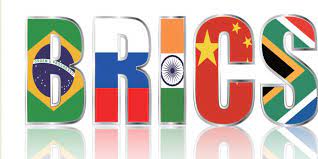Syeda Fatima Shah
Pakistan is confronted with unprecedented political and economic challenges amidst pronounced global polarization. The exacerbating financial problems faced by Pakistan increase its vulnerability to the US-China rivalry. The US has openly expressed concerns about Pakistan’s substantial debt to China, a significant portion of which has come under the China-Pakistan Economic Corridor.
On the contrary, China has attributed Pakistan’s dire financial crisis to the policies of the US. Reeling under backbreaking inflation and stalled IMF funding, Pakistan has expressed willingness to join the BRICS bloc. However, a crucial question remains as to whether Pakistan is adequately prepared for economic alignment, considering the challenges associated with potential integration in the bloc and whether its membership will be welcomed owing to its prevailing economic crisis.
Despite not being a member, Pakistan aspires to garner support from the BRICS alliance. It is essential to acknowledge the inherent conflict of interest that exists among the BRICS nations regarding Pakistan and the varying influence this conflict may have on the country. While recognizing the bleak scenario, it is worthwhile to also consider a more optimistic viewpoint.
The potential inclusion of Pakistan in BRICS could possibly foster borderless trade with India and a more lenient approach towards the Kashmir issue. Although ensuring political stability and security remain integral to sustainable growth and cooperation, the readiness of BRICS to address conflicts that impede stability in Pakistan remain uncertain. Undoubtedly, Pakistan’s economic predicaments, including the unsuccessful staff level agreement with the IMF, China’s reluctance to engage in debt restructuring, impact of war on terror on development projects and unopposed exclusion of Pakistan from the BRICS summit, largely stem from its own choices and actions. It is imperative for Pakistan to devise and adhere to robust policies, which can only be achieved if the country seriously considers implementing structural reforms and avoids being a scapegoat.
Through long-term commitments, Pakistan can effectively address economic repercussions accumulated over the decades and successfully instill a sense of credibility within the global community.







